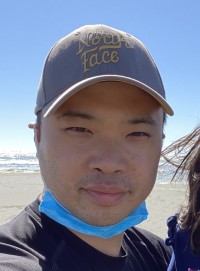The growth of data and healthcare demand has become exceedingly challenging to fulfill the primary objective of a physician: to treat and care for patients with the utmost compassion and to heal their conditions with the greatest skills. Physicians have been the sole stewards of complex medical therapy because the practice of medicine and the skills required need experience, exposure and iteration on the medical knowledge and understanding of disease. The experience collected to navigate the disease states, treatment action and next steps to build the expert opinions to steer the patient towards the best outcomes and save lives is developed over more than decades.
Accessibility is a big challenge to healthcare as we have witnessed. The potential of healthcare data is currently underutilized and has the potential to prevent the next pandemic. Medical research is effective but slow, which leads to poor population representation. The technology this presentation intends to introduce is the revolutionary next step for medicine.
Audience Q&A follows the presentation.
Speakers

Roger Ng, MD
Dr. Roger Ng is a cardiologist currently based in Seattle, Washington. He is affiliated with Seattle Memorial, CHI/Dignity Heath and recently Virginia Mason. While obtaining his medical degree, he worked at National Institute of Health on aging research and deployed computer vision techniques for large scale longitudinal feature extraction from medical imaging. Dr. Ng completed residency and fellowship training in University of Massachusetts, with combined training in cardiology, adult congenital heart disease and cardiac regeneration research at Massachusetts General Hospital, Harvard Medical School, from 2010 to 2013. He is board certified in Cardiology, echocardiography, nuclear cardiology and cardiac CT. His younger brother is also a physician and technologist. Even as a medical student Dr. Ng has been passionate in artificial intelligence and have been working with his brother to integrate AI systems into the lifeblood of hospitals and clinics to optimally personalize and solve medical conditions and leverage the variations in medical practices between physicians for machine learning models.